Hollywood's go-to visual effects company
- Published
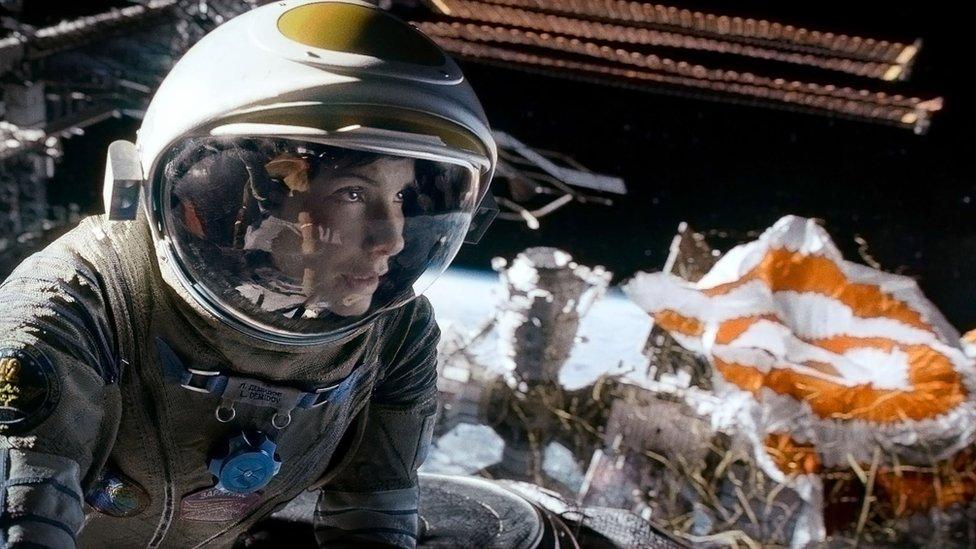
Framestore won an Oscar for its work on Hollywood movie Gravity
The opening 17 minutes of the 2013 science fiction thriller film Gravity amazed cinemagoers.
In one long take, it shows a Nasa Space Shuttle in mid-orbit being destroyed by a hail of space debris, sending astronaut Ryan Stone played by Sandra Bullock hurtling into space.
Director Alfonso Cuaron conceived the visceral scene, but it was London-based visual effects company Framestore that did the hard graft of turning it into reality, external.
The firm won an Oscar for its work on the movie, which took almost four years and a team of 400 specialists to complete - from animators and physicists to computer scientists.
"No one had ever really successfully portrayed zero gravity in a film, so we had to reinvent the film-making process," says Framestore's boss and founder Sir William Sargent.
"Many of the techniques and technologies used to create the movie simply did not exist when we started."
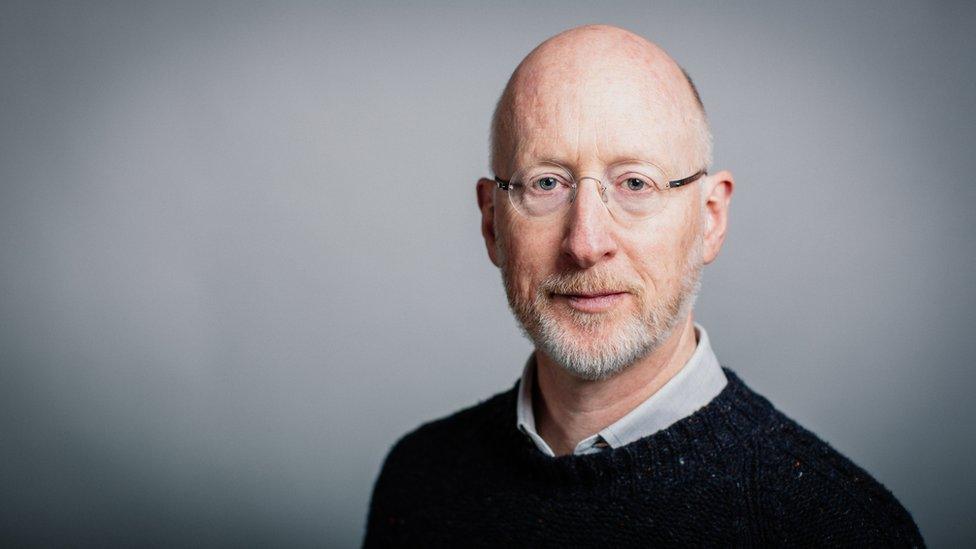
Sir William had a business head even in university, where he rented musical equipment to bands such as U2
Founded in 1986, Framestore has worked on a host of other big movies, including the Harry Potter series, external, Batman The Dark Knight, Bladerunner 2049 and the Paddington films, external; its annual revenues now exceed £129m.
But as the strategic brains behind the business, Sir William has had to navigate a rapidly changing industry that has left some visual effects companies struggling to stay afloat.
Born in the Republic of Ireland, Sir William actually began his career in rock and roll back in the late 1970s, renting out musical equipment to Irish bands such as the Boomtown Rats, Thin Lizzy and U2 while studying business and law at Dublin's Trinity College.
"My dad was a chartered accountant but I didn't share in the vision," the 61-year-old says with a smile. "He wouldn't support me, so I had find a way to pay the bills."
Moving to London after graduating from university, Sir William had a dream of writing film scripts but soon realised he was better suited to the business side of things.

Framestore's big break was working on the music video for Take on Me by pop group A-ha
"I guess I'm a failed writer," he says. "But I also learnt the writer is the bottom of the food chain, and if you want to progress there's nothing like being the producer as well."
Together with four friends he set up Framestore in 1986, with the aim of supplying a new technology that allowed producers to "digitally paint" on film.
One of their first jobs was the music video for Norwegian pop group A-ha's hit debut single Take on Me, which featured the band in a pencil sketch animation mixed with live action.
"It was pretty revolutionary stuff 30 years ago," says Sir William. "We were starting just as digital effects were coming in."
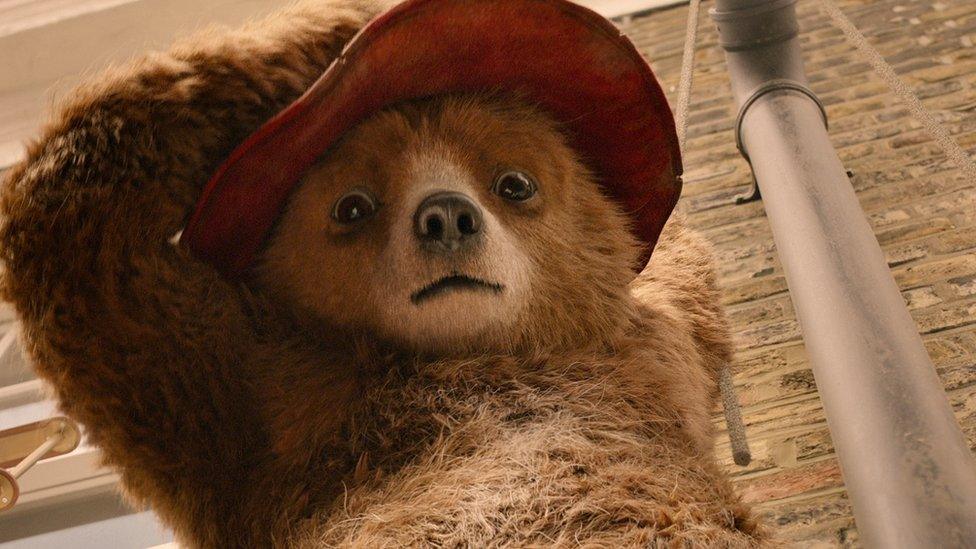
One of Framestore's most recent jobs was working on the Paddington films
Videos for David Bowie and Paul McCartney followed, as well as adverts for brands such as Weetabix. The firm has also worked in television, handling the computer-generated imagery for the BBC's award-winning natural history series Walking with Dinosaurs.
But it wasn't until 1998 that Hollywood came knocking, and Framestore was hired to work on sci-fi comedy Lost in Space staring Gary Oldman and Matt Leblanc. Sir William says the movie, which was shot in London, heralded a renaissance in British film-making.
"America didn't see the UK as a centre of excellence of film-making in those days - but today it is," he says.
"Think about the number of Hollywood movies made in the UK; in any given month you'll have three of the six big [US] studios filming in London."
Some have criticised the film industry for relying too heavily on digital effects, particularly in blockbuster action movies. But Sir William, who perhaps ironically has always preferred narrative-led movies to effects-laden ones, says "ultimately it's just a tool".
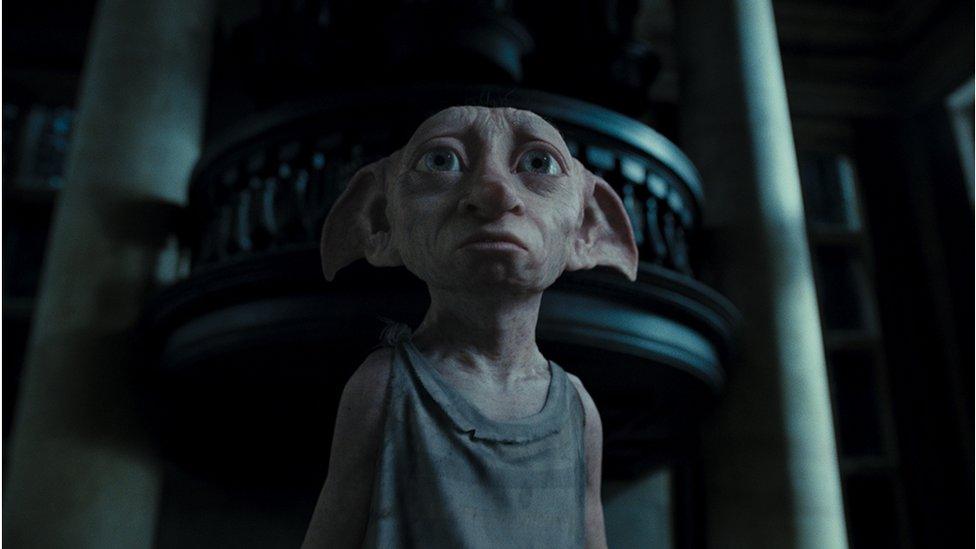
Framestore brought house elf Dobby to life in the Harry Potter films
"Almost every film uses digital effects in some way - there is a lot of invisible work you just don't know about," he says. "It also opens up a lot of story-telling possibilities that weren't there 30 years ago."
Today Framestore employs 2,500 staff, around 1,000 at its London headquarters, and the rest across offices in Chicago, New York, Los Angeles, Montreal, Pune in India and Beijing.
Its annual revenues have grown by 12-15% every year since it was founded, says Sir William.
Matt Mueller, editor of film magazine Screen International, explains that tax breaks and cheaper technology have allowed firms from around the globe to enter the visual effects market in recent years.
This has increased the competition for firms like Framestore, and driven a string of big effects houses in the US out of business.

More The Boss features, which every week profile a different business leader from around the world:
How Simon Carter fashioned a global menswear brand
The beauty boss who turned snakes into ladders

Mr Mueller says: "The UK has been a growing industry, but it could face challenges as more enter the market.
"You might see a lot of migration of this work towards South East Asia."
Sir William acknowledges there's a "downward pressure" in his industry but says it's "always been tough" and Framestore has kept on growing.
What could be more of a headache for the firm is Brexit, which analysts say could spur a brain drain in a UK industry already facing skills shortages.
Sir William admits he's concerned as Framestore's London headquarters employs staff from almost every EU country. But he points out it has diversified well, opening offices in up-and-coming visual effects hubs such as India and Canada, and will continue to do so.
In 2016, Framestore sold a 75% stake in its business to the Chinese conglomerate Cultural Investment Holdings (CIH) for £150m - a clear sign of where it sees the future.
"China's creative industries are growing fast and I want to be a part of that," Sir William says. "China's box office has gone up six-fold in the last nine years. They are consuming a huge amount of other digital content too."
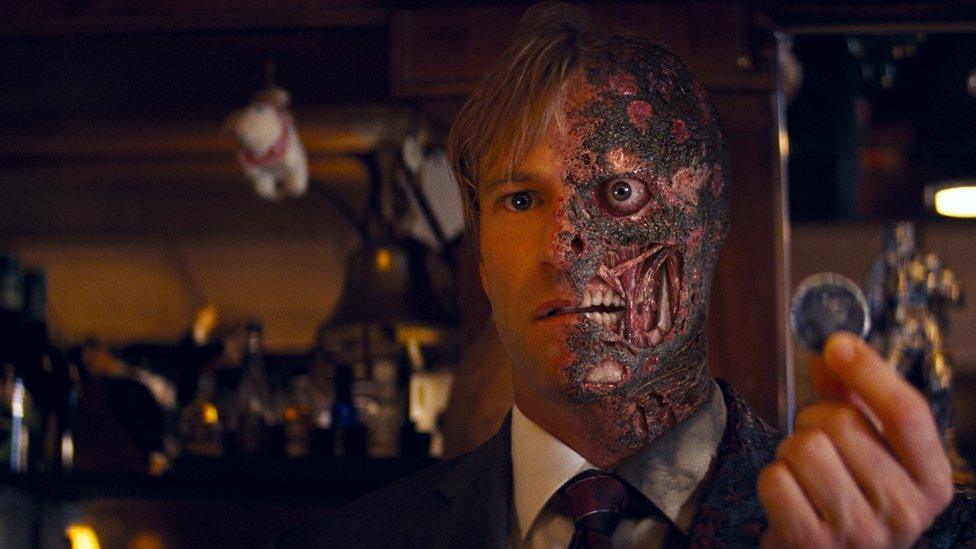
Framestore's work is sometimes far from pretty
Despite the CIH deal, Sir William and his management team continue to run the business.
In addition to leading Framestore, Sir William, who was knighted in 2008 for his services to business and the UK government, has also held a number of high-ranking civil service roles.
Between 2005-2010 he was a permanent secretary in the Cabinet Office, advising on regulatory reform under Labour prime ministers Tony Blair and Gordon Brown. He was also on the Treasury board until 2010, and is now part of the Mayor of London's business advisory board.
On top of this, he still finds time to keep up with his beloved Tottenham Hotspur, and bring up his 18-month-old son (he has two adult children as well).
"I like doing two things at once, it keeps you fresh and you learn a lot," he says.